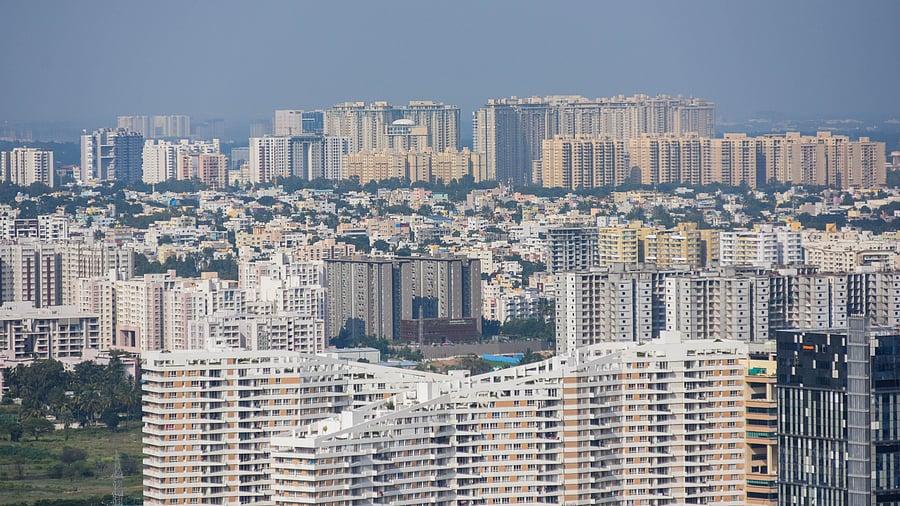
An aerial view of Bengaluru city near Nagavara lake, October 21, 2022.
Credit: DH PHOTO/PUSHKAR V
Bengaluru: Institutional investments into real estate reached $3.07 billion across 30 deals in January to June 23 of 2025, reflecting a 37% year-on-year decline, according to a note by commercial real estate and investment management company JLL out on Monday. This slowdown follows the historic realty investment peak that India saw in 2024.
Investment transactions are experiencing extended timelines due to the challenging international economic conditions and political uncertainties, explained the report.
The Mumbai Metropolitan Region (MMR) and Bengaluru together attracted 54% of the total real estate investments during the first half of 2025.
India is not the only country seeing softer demand. According to another report by real estate services and investment firm CBRE out on Monday, certain markets within Greater China and Australia are experiencing a softening in sentiment and more subdued leasing activity. Still, India remains one of the top Asia-Pacific (APAC) office markets, alongside Japan and Singapore, stated CBRE’s survey.
Yet, long-term optimism remains. “A robust pipeline of deals exceeding $1 billion points to sustained activity ahead. The surge in activity from REITs and institutional players further highlights the maturity and depth of the Indian real estate investment landscape. The real estate market has consistently demonstrated its staying power with annual investments surpassing the $5 billion threshold across the previous five years and we anticipate that capital flows for calendar year 2025 will align with these established benchmarks,” said Lata Pillai, Senior Managing Director and Head of Capital Markets - India, JLL.
The standout transaction of 2025 has been Blackstone’s entry into India’s residential real estate sector with approximately $214 million invested to acquire up to 66% of Kolte-Patil Developers.
Foreign institutional capital continued to dominate with 68% of investments during the period under review, with APAC leading with a 37% share.
